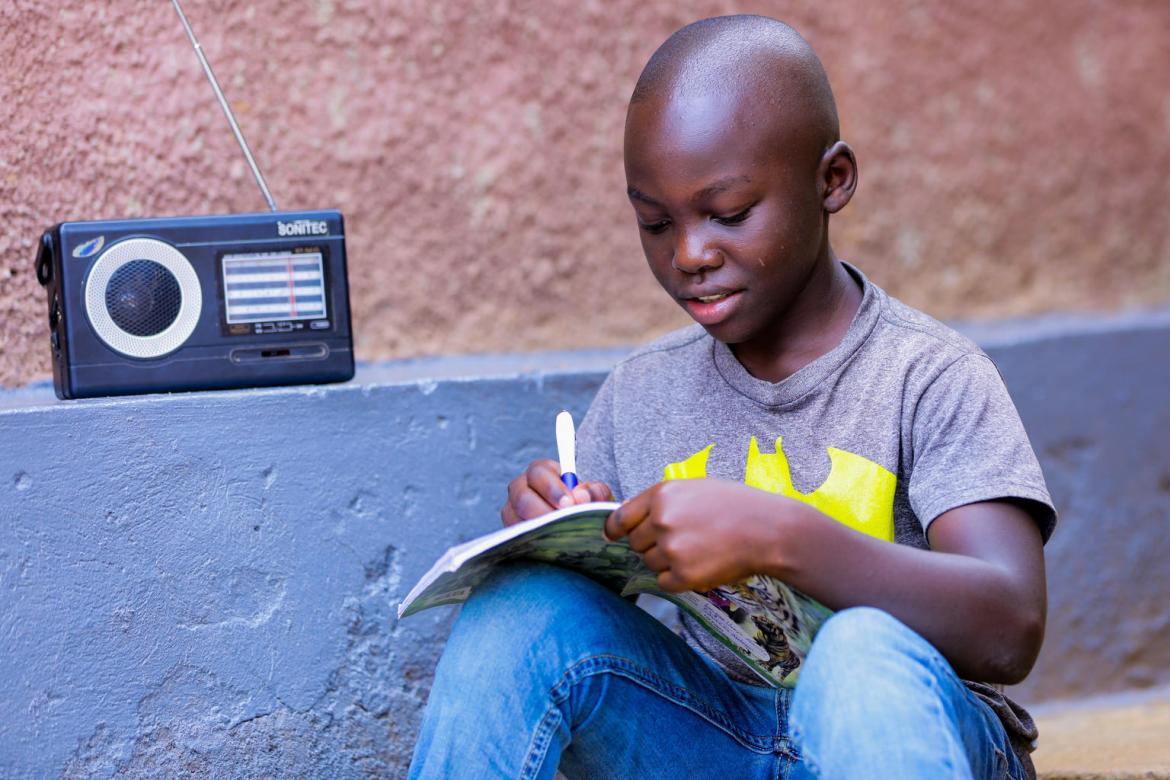Collaboration Will Sustain Education in Africa Post-Pandemic, Experts Say

Long-term plans and collaborative resilience are necessary to uplift education in Africa after COVID-19, a panel of experts told attendees of a virtual panel held on Saturday.
The webinar titled “The Impact of COVID-19 On Education in Africa” was organized by the African Students Association at Georgetown University in Qatar. It was moderated by Heba Mohamednor, a senior at GU-Q, and Kamilah Idris, a junior. The speakers included Lang Yabou, Gambian ambassador to the United Nations; Foday Malang, Gambian ambassador to Qatar; Auwalu Jega Namadina, charge d’affaires at the Nigerian embassy in Qatar; and Mubarak bin Nasser Al Thani, head of advocacy at Education Above All Foundation and an alumnus of GU-Q.
GU-Q Dean Ahmad Dallal started the panel by stating how events like these show the youth’s concern towards their region and that they have the power to make a change. “We need to leave our barriers and come together to find new answers to safeguard the quality of education as a human right in Africa and throughout the world,” said Dallal.
The speakers shared their insights about the current status and struggles of pandemic-hit education in Africa.
“According to WHO and UNICEF, school closures implemented to protect students from COVID-19 are hurting them in other ways,” said Yabou, attending the webinar from New York. “The long-term impact of this disruption to education could cause a huge loss, hence calling for safe measures to open schools, just like we’re opening businesses.”
Education, in addition to being a fundamental human right, has a direct impact on the realization of other human rights. Any threat to education is a threat to other aspects of humanity, added Yabou.
Namadina emphasized the need for a “sincere partnership” between African countries and more developed nations. “If you take education as a catalyst to socio-economic development, then other dimensions would be brought under possible impacts of this contagious virus in Africa,” he added. “This would bring you to the issue of productivity, lower indices of development. We have less resources to tackle the challenges, and a collaboration would benefit every sector including education.”
“Schools and colleges in Africa started to search for alternative ways of conducting classes to catch-up the loss in academic hours since the beginning of the lockdown,” said Malang. “However, limitations in infrastructural and human resources, especially connectivity problems, have caused problems for both the teachers and the students.”
Malang also emphasized that affordability of resources matters as much as the availability of resources in the region. “This pandemic posed a serious threat to 674,000 [Gambian] children up to secondary level of education, and the ministry had to make changes on the syllabus to make sure students made most out of what was being offered to them via radios.”
Malang also mentioned how the “Zero Out of School Challenge” program is “gladly on course” despite being significantly slowed down due to the pandemic. The program aims to reduce the number of out-of-school children, and is currently being extended jointly by Qatar Foundation’s Education Above All and the Gambian Ministry of Basic and Secondary Education.
“For many countries within Africa, the pandemic is expected to widen the inequalities and long-lasting negative impacts on education,” said Al-Thani. “From our work, I can tell you that COVID-19 is worsening the situation of education in sub-Saharan Africa. Latest estimates suggest that we’ve permanently lost an additional 5.3 million students within the region that contains almost 50% of the total non-school-going child population of the world.”
Al-Thani reflected on the impact that this rapid loss would bring. “Long lasting school closures in Africa are putting children at risk of never returning to school again…this proportionately affects girls with issues related to early marriage resulting in pregnancy, which is a barrier that usually significantly intensifies in times of crisis.”
Al-Thani also talked about EAA’s commitments and projects to support education in Africa.
“We at EAA work to secure education of the most marginalized youth in the world. In Nigeria, for example, we had an innovative approach. We launched the remote learning strategy in partnership with the state government to keep children learning remotely via TV and radio as a means of bridging the digital divide in the region,” he said.
The panelists agreed that this crisis might be a window of opportunity to reflect and work on the lapses that Africa’s education systems contain.
“This is also an opportunity to make education relevant, something that is beyond rhetoric,” Namadina said. “This is a unique situation, and this can certainly be an opportunity to make education more skill-based so that we can tackle the barriers of societal problems.”












